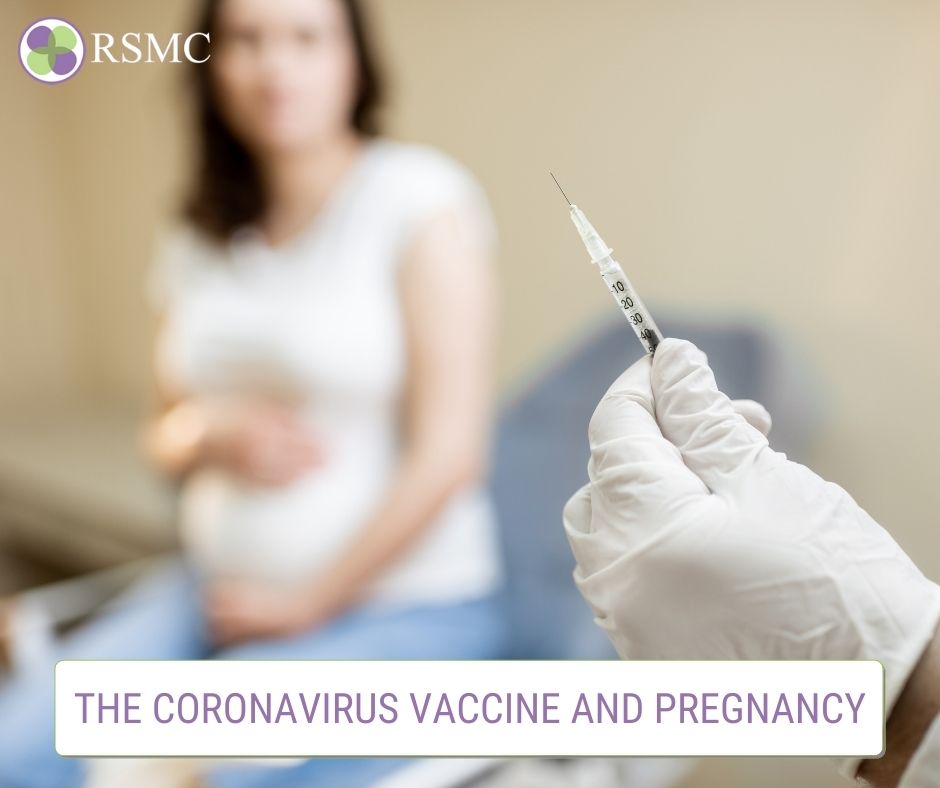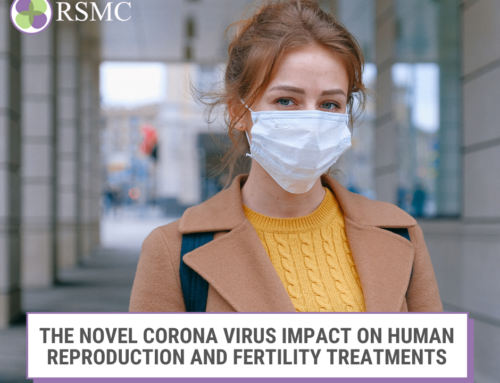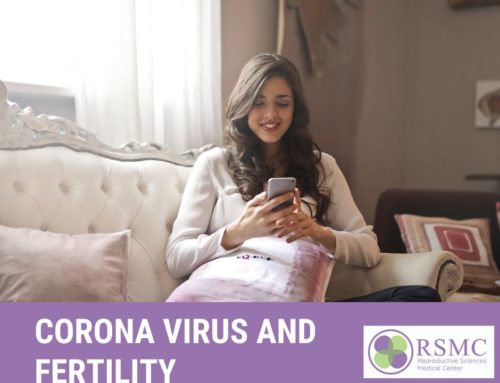In this time of panic and uncertainty, pictures of old people and healthcare workers receiving COVID-19 vaccines have given a lot of us hope that we might finally be able to curtail the pandemic and return to our normal way of life. However, for pregnant women or those trying for pregnancy, the question of whether or not to get the coronavirus vaccine brings along some considerations and concerns many of us need to worry about:
Is the COVID-19 vaccine safe for my pregnancy, for my child, or for the baby I’m trying to conceive?
The great news is, the fertility medicine specialists of the American Society for Reproductive Medicine (ASRM) agree that it is. In fact, women who are breastfeeding, pregnant, or trying to have a baby are advised to take the vaccine, according to the organization’s update on the coronavirus pandemic and its effect on conception and pregnancy.
Covid-19 vaccines protect pregnant women and their families
While some people still don’t trust the two vaccines so far authorized for use by the FDA, recent polls show an increasing number of people in the US are willing and ready to take the vaccines. It is estimated that around 75-85% of Americans need to be vaccinated for the country to have a “blanket” or herd immunity protection against coronavirus outbreaks.
“If you have a high efficacious vaccine, and only 50% of the country gets vaccinated, you’re not going to have that umbrella of protection of herd immunity,” said renowned epidemiologist Dr. Anthony Fauci in a Facebook live discussion on November 30.
Regarding COVID-19 vaccines and a surrogacy pregnancy, the same would also apply because the physical symptoms experienced by the pregnant surrogate are not different from those of a traditional pregnancy. Once the surrogate mom becomes pregnant, she would need to keep taking estrogen and progesterone hormones to make sure the baby develops properly.
The recent update from the ASRM COVID-19 taskforce advises doctors to decide based on what they deem best and the individual needs of each patient.
Below is a summary of recommendations from the ASMR’s COVID-19 taskforce:
-
Don’t withhold the coronavirus vaccine due to pregnancy
The task force advises doctors not to withhold the vaccines from women who are trying to get pregnant, carrying a pregnancy, or presently breastfeeding a baby – which is in line with the guidance dished out other professional healthcare associations.
-
Pregnant women should get vaccinated when they are qualified to do so
Pregnant patients and those undergoing fertility treatment during coronavirus pandemic should be urged to take vaccines depending on the eligibility requirements, like age, front-line employment, and underlying health conditions.
Since patients are not injected with a “live” virus, there’s no point postponing pregnancy attempts due to vaccine administration or deferring treatment until the patient has received the second dose of the vaccine.
-
The decision to take COVID-19 vaccines should be between the patient and their doctor
It is up to the patient and her doctor to decide whether or not she gets vaccinated, bearing in mind the “ethical principles of autonomy, beneficence, and non-maleficence.”
-
Patients and doctors should make decisions regarding taking the COVID-19 vaccine depending on the risk factors and local conditions
Doctors and patients should consider many important factors when deciding whether or not to receive the COVID-19 vaccine, including local transmission risk, personal factors that raise the odds of getting the virus, risks of the fetus or mother contracting the coronavirus, the side effects and efficacy of the vaccines.
They should also consider the fact that we don’t have much data about the impact of the coronavirus vaccine in pregnancy.
-
COVID-19 vaccines don’t pose risks to reproductive health like “live virus” do
COVID-19 mRNA vaccines, like those recently approved for emergency use in the U.S., do not have “live virus,”.
So it does not carry many of the risks associated with a “live” vaccine, such as miscarriage, congenital disorder, or infertility.
-
People who are susceptible to adverse allergic reactions must take extra precautions when taking COVID-19 vaccines.
There are reports that a lipid nanoparticle in the Pfizer vaccine and many other injectable drugs may cause a severe allergic reaction in certain people. Hence, extra caution is advised when giving the vaccines to those who have had strong allergic reactions to previous vaccines or injectable medicines.
-
Currently authorized COVID-19 vaccines were not tested on pregnant women
It is true that a lot of ASRM taskforce members and other fertility health experts agree that the protective benefits of coronavirus vaccines for pregnant women or those trying for pregnancy are much greater than the risks of taking the vaccine.
However, these vaccines were not tested in women who are pregnant or breastfeeding a baby.
Hence, ASRM advises that doctors, pregnant or nursing women, and those trying to have children carefully consider the risks of getting the vaccines against the risks to the patient, fetus, and unprotected family members.
There are a lot of things yet to be known about the effectiveness of the vaccines and the degree of protection they offer.
As we are reminded by the ASRM update:
- we still don’t know whether a vaccinated person can contract the virus if they come in contact with SARS-COV-2 (COVID-19)
- it would take some time to develop protective immunity against the coronavirus; and
- while a two-dose regimen of the Pfizer vaccine is 95% effective against the development of the disease, it does not offer 100% protection against the virus.
Also, there are some key considerations pregnant patients need to discuss with their healthcare provider:
- Likelihood of exposure to SARS-CoV-2, the virus responsible for COVID-19
- Potential risks that COVID-19 poses to them and their fetuses
- What is known so far about the vaccine: how effective is it to develop protection in the body, any known side effects of the vaccine during pregnancy etc.
A few things about the coronavirus vaccine and its trials on pregnancy
For women trying for a baby
Although pregnant women were not included in the human trial for Pfizer-BioNTech covid-19 vaccine, researchers later revealed that 23 of the participants got pregnant over the course of the study. 12 of these women had already taken the vaccine, while the remaining 11 had taken the placebo.
In December last year, the government updated its covid-19 guidelines, stating that women who are trying to conceive don’t have to shy away from pregnancy after vaccination.
However, according to the recent guidance from Public Health England, if a woman becomes pregnant between the two vaccine doses, the second dose should be postponed until after she has given birth.
For women expecting a baby
During this coronavirus period, it is crucial that pregnant women get the influenza vaccine to protect themselves and their babies from the adverse effects of becoming very sick with flu.
Although women are normally vaccinated against diseases like whooping cough when pregnant, it is common for them to be advised not to take a new vaccine.
Medical experts have been quick to reassure pregnant women that the Covid-19 vaccine does not contain the “live virus” and cannot result in coronavirus infection in her or her child. However, more clinical studies are needed to back up these claims.
Presently, animal studies don’t suggest any direct or indirect adverse effects of the Covid-19 vaccine on pregnancy, fetal development, childbirth, or post-natal development.
Women with high-risk pregnancies
According to the Joint Committee on Vaccination and Immunisation (JCVI), the possible benefits of coronavirus vaccination can be extremely important for some pregnant women.
Breastfeeding women
The JCVI has also said that women who are breastfeeding can receive the vaccine.
While we currently don’t know whether the coronavirus vaccine is excreted through human milk, it is generally agreed that vaccines pose no risk to a breastfeeding baby.
Future fertility
Vaccinated women are being told that they don’t need to wait more than three months after getting the last dose to start trying for a baby. So far, there’s been no evidence suggesting that they could have an issue getting pregnant, either.
During a coronavirus press briefing back in December, the UK Government’s CMO, Professor Chris Whitty, ruled out the prospect of the vaccine affecting future fertility. He said, “No current evidence of any impact on fertility” before adding that “Lots of concerns are there, and people (who) are wanting to start families, of course, have concerns very reasonably.”
In fact, coronavirus vaccination can be especially important for women who are at risk of contracting the disease due to the nature of their jobs or circumstances. Those who are suffering from clinical conditions that make them more likely to develop severe Covid-19 complications can also benefit from the vaccine.
Presently, women in these circumstances are encouraged to speak with a medical professional regarding the protection the vaccination may give them.
No evidence found that the Pfizer vaccine affects women’s fertility
Claim
The coronavirus’s spike protein that the Pfizer vaccine helps elicit an immune response against can also cause the body to attack syncytin-1, a vital protein found in the placenta, resulting in infertility in women.
Our findings
There is no evidence behind this claim. Although the Covid-19 spike protein and syncytin-1 do have a little in common, it is not enough to make the immune system attack the placenta.
We often got asked by many intended parents about claims that the Covid-19 vaccine authorized for emergency use in the US could cause infertility in women.
The reason cited for this is that the Covid-19 vaccine works by causing an immune response against the protein on the surface of the coronavirus and that this response could also make the body attack similar proteins found in the placenta, leading to women’s infertility.
However, there is no scientific evidence that this is the case.
Where did this claim originate from?
This claim comes from a protein on the surface of the coronavirus known as spike protein. This protein helps the virus gain entry to the human cells to do its damages and is one of the ways the body identifies the virus and allows the immune cells to attack it.
The Pfizer vaccine confers immunity by giving the body instructions on how to produce this spike protein so that it can elicit an immune response that destroys the virus through the spike protein more quickly and effectively in case the individual later got infected.
Proteins are made up of amino acids, and it is the combinations of these that yield various proteins.
A tiny part of the coronavirus spike protein does look like a part of another protein found in the placenta known as syncytin-1. However, the amino acid sequence that is similar in both SARS-CoV-2 spike protein and syncytin-1 is very short.
Just two tiny parts of these proteins resemble, not the entire protein molecule. Therefore, it is highly unlikely that the body’s immune system will mix up the two and attack syncytin-1 instead of the spike protein on the coronavirus’s surface and prevent a placenta from forming.
What do the experts say?
According to Professor Ian Jones, a virologist at the University of Reading, the resemblance between the Covid-19 spike protein and syncytin-1 is not enough for the antibodies produced by the body in response to the vaccine to attach to and destroy syncytin-1.
He stated that syncytin-1 is not related to the Covid-19 spike protein and that the notion of infertility is “essentially fictitious.”
Another virologist, Professor Jonathan Stoye, also said that these proteins are not that similar, as some people have claimed.
As to whether the Pfizer vaccine could elicit an immune response against the syncytin-1 protein, which is important for placenta formation, Stoye said, “I would never say never, but the possibility is vanishingly small.”
What did the human trials indicate?
There is also no evidence from the vaccine trials that it impacts fertility.
Since the Pfizer vaccine produces an immune reaction to the spike protein, if it negatively affects fertility, we can also expect coronavirus infections to do the same, as the body should elicit a similar immune reaction in an infected person. But this is not the case. While Covid-19 tends to be more severe in expectant women, there seems to be no evidence that Covid-19 makes women suffer a pregnancy loss or have difficulty getting pregnant later.
The government’s update on Covid-19 states you should not get vaccinated if you are expecting unless you are at high risk. You can be vaccinated after your pregnancy is over. It also says that if you are expecting but think you are at high risk, you should speak to your health professional about receiving or completing vaccination.
Claims that the vaccine may affect fertility point to the guideline published by the UK government, which stated that: “It is unknown whether COVID-19 mRNA Vaccine BNT162b2 has an impact on fertility.”
Even though we have not had years to see what occurs after people receive the vaccine, this does not imply that the Pfizer vaccine affects fertility. It only means that it has not been extensively researched.
Vaccine effectiveness
To arrive at the 95% effective rate for the Pfizer vaccine, half of the 43538 volunteers were given the Covid-19 vaccine and the other half a placebo. The researchers then collected data on the participants who showed Covid-19 symptoms at least one week after getting the second vaccine dose. 90 subjects in the placebo group showed symptoms of coronavirus and just 19 in the vaccine group. And it was assumed that both groups had the same risks of contracting Covid-19.
It is crucial to note that the available data is about contracting Covid-19, not about producing antibodies to combat the infection. As can be seen above, there were people in each group who still develop coronavirus symptoms. Hence, it’s still important to follow precautions such as wearing protective masks, washing your hands, and avoiding close contact with people who may have contracted the virus.
While the Covid-19 vaccine may reduce your risk of getting coronavirus, note that it will not completely eliminate the risk.
What are the possible side effects of the vaccine?
As with all life-saving vaccines, the Covid-19 vaccine has some adverse effects.
You may experience some side effects in the first three days after receiving the coronavirus vaccine. These include mild-to-moderate headaches, fever, and muscle aches. In the human trials, less than 4% of participants had fever after the first vaccine dose, and around 16 % had fever after taking the second dose.
Medical experts recommend that pregnant women who develop fever after getting the vaccine take acetaminophen. This medication does not cause any harm during pregnancy or affect how the vaccine works.
“The injection into your arm won’t feel different than any other vaccine, but the rate of short-lived side effects does appear higher than a flu shot. Tens of thousands of people have already received the vaccines, and none of them have reported any serious health problems. The side effects (which can resemble the symptoms of Covid-19) last about a day and appear more likely after the second dose. Early reports from vaccine trials suggest some people might need to take a day off from work because they feel lousy after receiving the second dose.
In the Pfizer study, about half developed fatigue. Other side effects occurred in at least 25 to 33% of patients, sometimes more, including headaches, chills, and muscle pain. While these experiences aren’t pleasant, they are a good sign that your own immune system is mounting a potent response to the vaccine that will provide long-lasting immunity.”
— wrote Abby Goodnough and Carl Zimmer in a New York Time article published on Dec 14, 2020
What we’ve learned…
In the essence of keeping ASRM’s Advice in mind, we wish you all an exciting 2021 filled with joy, happiness, health, and the chance to gather again with your family and friends, even as we implore you all to remain careful.
Put on a protective mask, wash your hands regularly, and stay at least 6 feet away from the next person. And if possible, stay at home to keep you and your loved ones healthy and safe.
We also suggest bookmarking this post, as we will be updating the latest updates about the coronavirus vaccine and its role in pregnancy timely.
If you are thinking of becoming a parent through assisted reproductive technology or have any questions regarding your fertility, contact RSMC today to schedule a consultation.






















